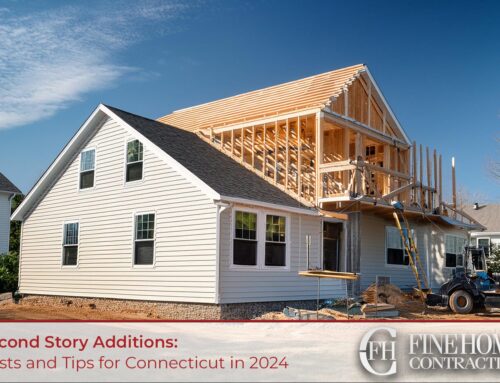Introduction to Aging in Place and CAPS
As we age, the idea of staying in our own homes becomes increasingly appealing. Aging in place allows seniors to live comfortably and safely in their own homes for as long as possible. The Certified Aging in Place Specialist (CAPS) program has gained attention in recent years for its ability to help homeowners achieve this goal. Hiring a CAPS-certified contractor provides reassurance that your contractor will make the choices necessary to ensure your safety and security in your home.
What is Certified Aging in Place (CAPS)?
Aging in place refers to the concept of remaining in your own home as you age, rather than moving to a nursing home or assisted living facility.
The CAPS program was developed by the National Association of Home Builders in collaboration with the AARP. It aims to train professionals on how to make homes safer and more accessible for seniors. CAPS professionals are equipped with the knowledge and skills to understand the unique needs of aging homeowners and provide appropriate modifications and renovations.
The CAPS program was launched in 2001, and since then, it has trained thousands of professionals to address the specific needs of aging homeowners. The program has evolved over the years to keep up with the changing needs and advancements in home modification techniques.
It involves making modifications to the home to increase safety, accessibility, and comfort for seniors, allowing them to maintain their independence.
Benefits of Aging in Place
Aging in place offers numerous benefits to seniors. It allows them to maintain their independence, staying in a familiar environment where they are comfortable. Additionally, it can potentially save money on long-term care costs. It also eliminates the stress and disruption that often accompany moving to a new living situation.
Why Choose a CAPS Professional?
Certified Aging in Place Specialists (CAPS) are professionals who have been trained in designing and building home renovations to accommodate individuals with disabilities or those who wish to age in place. Choosing the right CAPS professional for your home renovation is crucial to ensuring that your home is designed to meet your specific needs and preferences.
When choosing a CAPS professional, consider asking for referrals from friends or family members who have undergone similar home renovations. You can also search for CAPS professionals in your local area online or through the National Association of Home Builders website. Conducting interviews and asking relevant questions will help you determine the right professional for your project.
The CAPS program covers a wide range of topics to ensure that professionals are well-prepared to address the needs of aging homeowners. The curriculum includes universal design principles, which focus on creating homes that are accessible and functional for individuals of all ages and abilities. It also covers home assessments and specific modifications that increase safety and accessibility for seniors.
Choosing a CAPS professional ensures that your home modifications are done by someone with expertise and knowledge in aging in place. These professionals have undergone rigorous training and have a deep understanding of the unique needs of older adults. They can provide recommendations and implement modifications that are tailored to your specific requirements.
CAPS Modifications to Increase Home Safety and Accessibility
The modifications made to a home to increase safety and accessibility for seniors can vary widely depending on individual needs. However, all modifications follow universal design principles, which aim to make the home accessible and functional for individuals of all abilities. This may involve adding features such as wheelchair ramps, stair lifts, walk-in bathtubs, wider doorways, grab bars, and lever door handles.
Current Trends in Aging in Place
Current trends in aging in place include an increased focus on home automation and technology that allows individuals to stay connected and safe while remaining in their homes. This may involve the use of smart home technology, emergency alert systems, and remote monitoring systems to enhance safety and security.
Researching CAPS Professionals in Connecticut
Connecticut has a number of CAPS professionals who are available to help you design and build your home renovation. To find a CAPS professional in Connecticut, consider checking online directories or asking for referrals from local home builders or contractors. The National Association of Home Builders and the local chapter of the Connecticut Home Builders Association can also provide valuable information about CAPS professionals in your area. Fine Home Contracting is proud to be a Certified Aging in Place specialist. To request an appointment regarding CAPS, click HERE.
Conclusion: The Future of Aging in Place in Connecticut
As the population in Connecticut continues to age, the need for aging in place home renovations is likely to increase. Fortunately, there are a number of CAPS professionals in Connecticut who can help individuals and families design and build homes that meet their specific needs. Aging in place is an excellent option for those who want to live independently in their own homes as they age, and the CAPS program provides the necessary tools and resources to achieve this goal. By researching and working with qualified CAPS professionals, you can enjoy a safe, comfortable, and independent lifestyle in your own home for years to come.







